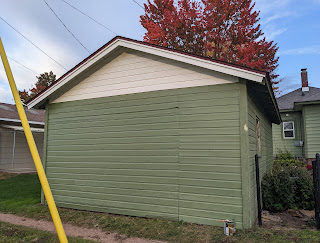But about goodbyes, we have all heard of people who sneak away in order to avoid a painful or awkward goodbye. Maybe you know one of these folks personally. On the other extreme, we have Bilbo Baggins who made a big show of his departure. On his 111th birthday, he hosted the entire Shire for a party. When they were well and truly sated with every good thing, he gave the anticipated speech. Beginning with compliments to all of his fine friends, he paused and perhaps fidgeted a moment before continuing, “I, uh, I have things to do. I've put this off far too long. I regret to announce that this is the end. I am going now. I bid you all a very fond farewell. Goodbye.” Then, as most of you will know, he abruptly disappeared from their sight, leaving his nephew Frodo whom he had adopted to attend to the shocked neighbors.i
Friends, this is my goodbye.
When I rebooted the Fierce Joy & Hope blog in January, I did not know the shape it would take. Nor did I know who or how many would choose to read it. It was an experiment, and has been a good one as it propelled me to begin writing more regularly and on a variety of topics. And some people read what I wrote. Thank you for your part.
I don’t know what is ahead for me. Although I have often thought I was in charge of my life, I have never really known what’s ahead. Still, I am confident that the Spirit will guide me as long as I leave her an opening. I am sure God is not through with me. As I used to tell the church’s nonagenarians, “as long as we are still breathing…” Maybe longer.
Lead me to the rock that is higher than I am
because you have been my refuge. Psalm 61:2-3
i J.R.R. Tolkien, “A Long-Expected Party,” first chapter of The Fellowship of the Ring which is the first volume of the novel, The Lord of the Rings, 1954.



























